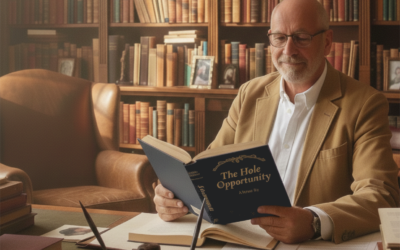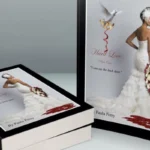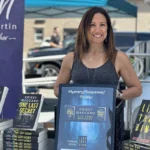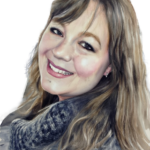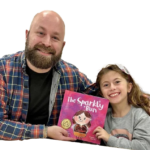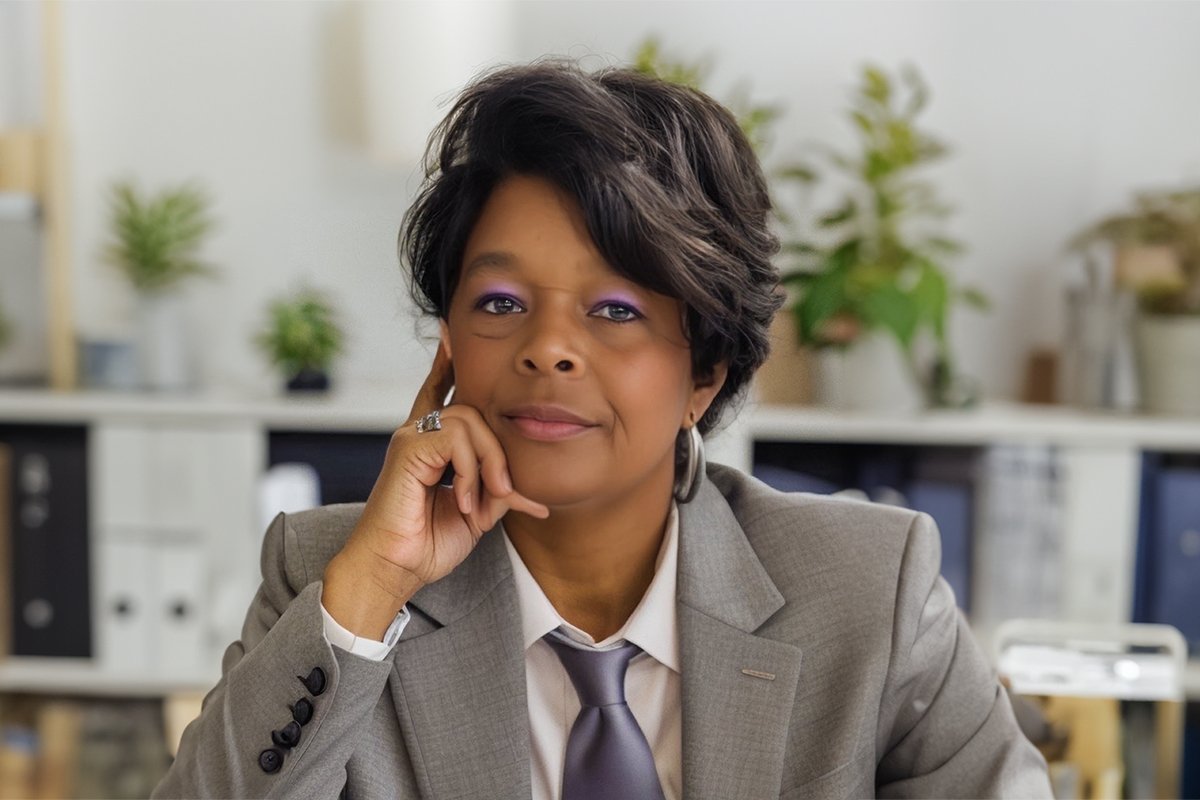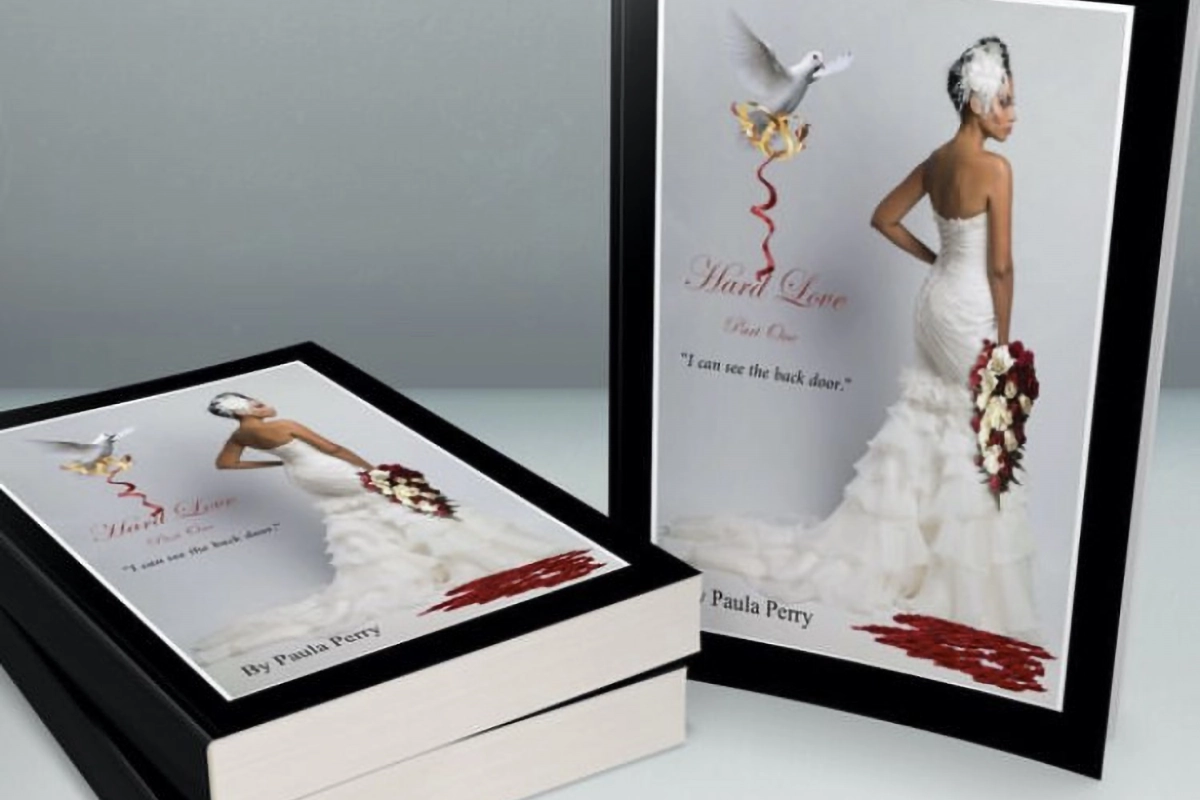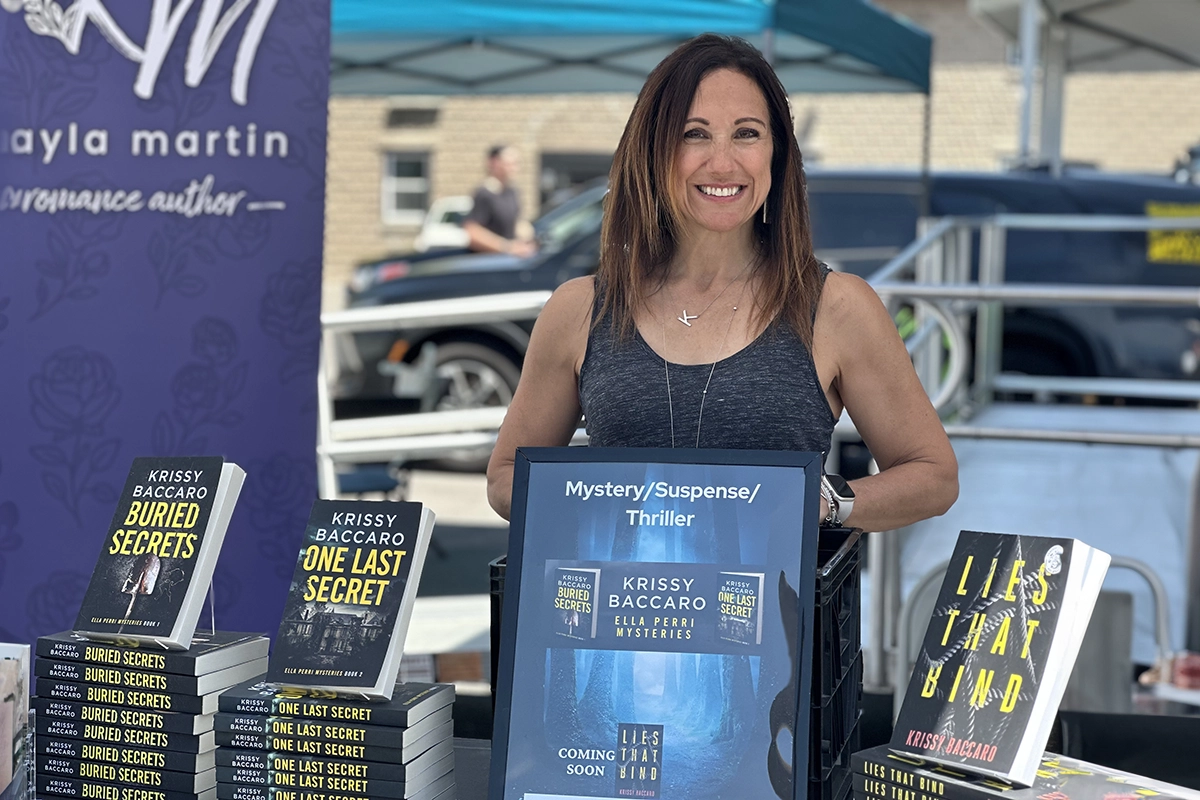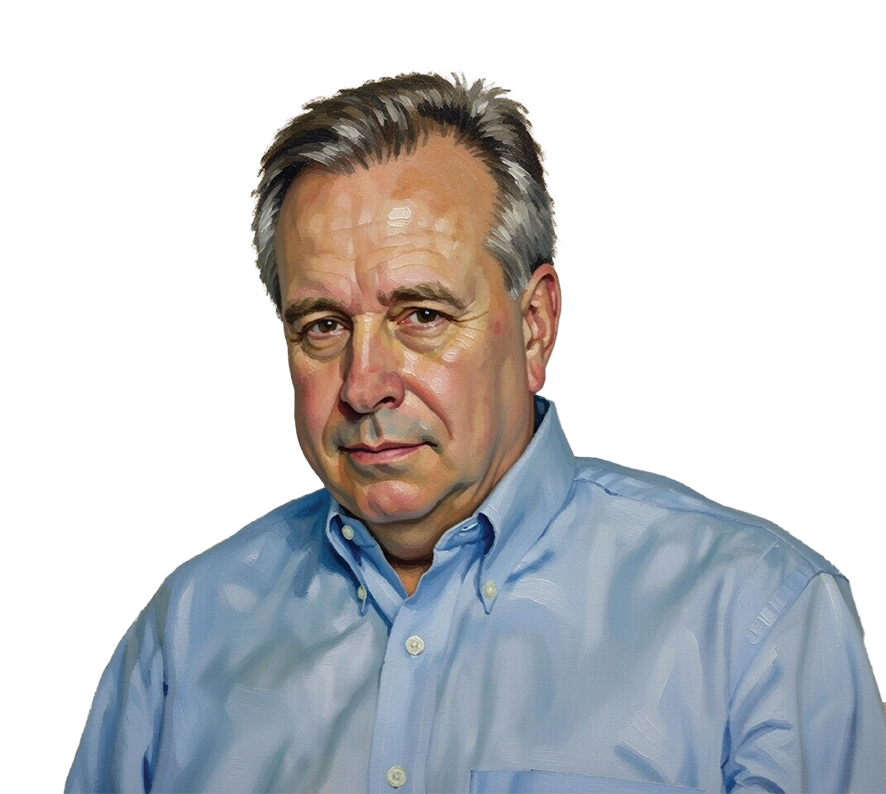Christopher Miller Shares His Journey Of Heart-Centred Coaching And Strengths-Based Leadership
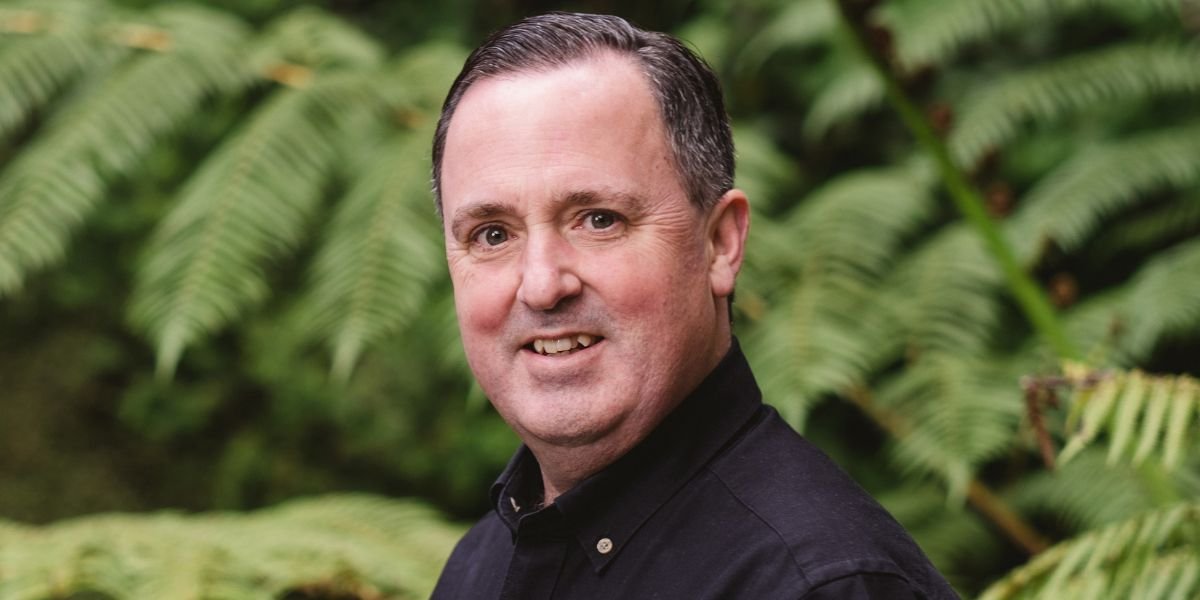
PHOTO: Christopher Miller guiding others through heart-centred coaching while sharing his journey of love, resilience, and personal growth.
Discover How Love, Resilience, And Purpose Can Transform Lives And Businesses Through Practical Wisdom And Insight
Christopher Miller blends personal experience, coaching expertise, and strengths-based strategies to guide readers toward fulfilment, love, and professional success, empowering them to integrate heart and purpose into every aspect of life.
Christopher Miller embodies the rare blend of intellect, heart, and purpose that defines truly transformative leaders. From his early roots in Canada to his global influence as a consultant, coach, and author, Christopher’s journey has been guided by one central philosophy — living and leading with love. His ability to merge strategic business acumen with deep emotional intelligence has made him an inspiration to readers and professionals alike.
His acclaimed FISH series — beginning with The Joy of Finding FISH and continuing through Finding FISH in a Strengths-Based Practice — offers a roadmap to fulfilment, inspiration, success, and happiness. Through his writing and his Expansive.Love initiative, Christopher invites the world to embrace a more compassionate and heart-centred approach to life and work.
Christopher Miller inspires with practical guidance, heartfelt wisdom, and transformative insights that encourage readers to live fully and lead with authenticity.
Mosaic Digest magazine proudly features Christopher Miller in this insightful interview, where he shares his wisdom on balancing purpose and passion, navigating love and loss, and empowering others to create lives rooted in authenticity and joy.
You describe your coaching as “heart-centred” and strengths-based. How did you first arrive at that philosophy, and was there a pivotal moment or mentor who shaped it?
My introduction to strengths philosophy came the year I joined Gallup as a senior consultant in New Zealand. I had always had a very positive and optimistic approach to life, and finding strengths language to describe myself and others was both inspiring and illuminating.
My investment into heart-centred leadership, and promoting a more loving approach to life more generally came through the lived experience of losing my wife to brain cancer in 2021. She was an extraordinary person who was a real role model for me in living unconditional love. When she passed away, my love for her had to be expressed through other means, which led to the launch of Expansive.Love and my Let’s Talk Love card deck which makes conversations about love more accessible for families and high trust teams.
“My investment into heart-centred leadership came through the lived experience of losing my wife to brain cancer.” – Christopher Miller
In working with entrepreneurial couples, what is the most common tension you observe between partnership and business, and how do you help clients navigate it?
The most common tension tends to be the allocation of time, and time as a surrogate for love in many cases. What is the value of a profitable business built on 60 or 70 hours per week if the quality time with the most important people in your life suffer? Alongside this is the respect and celebration of each person’s talents, what they do best, and what they love most in the business. My investment with clients is to help them clarify and articulate what is most important to them in life and business (values), and to identify how a couple will nurture a loving relationship both for each other and for their children where relevant. Ideally the business serves this outcome rather than the owners feeling burdened by the responsibility and aspiration of commercial success.
Your site mentions “building a practice you’re proud of while living the life you’ve dreamed.” What does “balance” mean to you personally, and how do you maintain it in your own life?
I have designed my life intentionally to prioritise my sons Cameron and Ross who are my absolute favourite and most important people. My self-employment gives me lots of flexibility to be present for them and actively participate in some of their activities, including the sport of springboard and platform diving. Often you can find me at the pool watching Ross train and writing my next book or communicating with clients via messaging.
Tell me about the process behind your book Finding FISH in a Strengths-Based Practice — what were your biggest challenges in writing it, and what surprised you in the course of researching or composing it?
I wanted the book to be full of practical examples, case studies and commentary from strengths experts other than myself. This meant quite a lot of very intentional research to align to each chapter of the book, and in the editing, integrating all of the examples with the core text of the manuscript. This was quite different to my first book (The Joy of Finding FISH – a journey of fulfilment, inspiration, success, and happiness) which just kind of flowed out of me in a fairly sequential way, with many of my coaching philosophies and the journey of loving and losing Fiona downloading almost as a stream of consciousness. There was something more deliberate, structured and intentional about Finding FISH in a Strengths-Based Practice.
How do you integrate your coaching, writing, and mentoring work in a way that each feeds the other, rather than competing for your time or focus?
My writing occurs largely at weekends and I have a habit of taking the dog for a walk in an early morning, making a pot of coffee, and then sitting down for up to 4 hours generating a chapter or more. My coaching and mentoring takes place during the week and is scheduled in a way that enables me to do the school run and attend after school sports. My coaching / mentoring questions, relationship with my clients and impact stories often turn up in my writing, either anonymously or attributing to my clients when they are comfortable to be highlighted. None of my life feels like a competition as I love all of it and relish the variety of activity and relationships.
To give a sense of a typical week, Monday is generally sales, reach outs and social media planning. Tuesday morning is practice strategy and admin with my practice manager. Tuesday to Thursday is client sessions. Friday is strengths-based, heart-centred webinar (monthly) and recording for my ExpansiveLove Dialogues podcast. Saturday morning is writing and the rest of the weekend is with family.
In your years of mentoring other coaches, what recurring blind spots or limiting beliefs do you most often see them wrestle with? And how do you help them move past them?
The biggest one that me and my clients continue to grapple with is a guilt-free approach to getting paid to do what you love. Most of my clients are living their dream AND have a sense of guilt that they do not deserve it, or that their work should feel like work rather than the joy it is. Feeling deeply grateful for what you have and your living/working experience is the precursor to helping others build the life of their dreams as well.
If you could go back and observe your author/self when you published your first major work, what advice would you give that earlier self?
My first book was a bit of a blur as I wrote a significant portion of it after Fiona was diagnosed with brain cancer, and wrote the last 5 chapters three months after she passed away. I was in a state of shock, and writing felt very therapeutic to sort through lots of emotions and to write the book as a tribute to her, and a moment in history for my boys to read sometime in the future. I don’t think I’ll ever write another book in quite the same way, though the emotion I am putting into the third FISH book (ExpansiveLove) is a little similar to the first. Fiona’s legacy of unconditional love features heavily in book 3.
Which authors, thinkers, or coaches do you most frequently return to for inspiration or recalibration, and why do they speak to you?
Professionally, three of my greatest inspirations have been Sir John Whitmore (one of the founders of modern day coaching and author of Coaching for Performance), Tom Rath (prolific author both for Gallup and independently; Strengths-Based Leadership is genius for its perspective about both leadership and followership strengths profiles) and Jim Collins (famous for Good to Great, but all of his books offer highly detailed, evidence-based perspective on how to run an exceptional organisation; some of the case studies are now outdated but the principles remain very relevant).
For running a solo practice and practical advice to improve my own commercial success, I am grateful to Matt Church of the Thought Leaders Business School and author of The Thought Leaders Practice alongside Peter Cook and Scott Stein.
My most recent professional mentor is Lisa O’Neill who is an absolute inspiration and expert in Energy in every way.
Looking ahead, what themes, questions, or challenges do you think are emerging in the coaching / personal-development space that authors and practitioners should pay attention to?
I think the integration of artificial intelligence and the ability of coaches to leverage technology while remaining authentic and unique in the way they deliver their impact with clients is going to be fascinating to watch. Authors / coaches / thought leaders are experimenting with avatars that have the potential to keep intellectual property alive long after the original creator has died. What is not clear is how this remains commercial in an age of free, searchable content, and who owns it.
Finally, for authors who aspire to build a sustainable, meaningful writing or coaching practice, what are the key pieces of advice or guiding principles you would offer them (especially those just starting out)?
Don’t worry about being perfect – I have a motto that suggests that in my own zone of genius, 80% is probably good enough. And everyone has a zone of genius – somewhere at the junction of what you do best, and what you love most. People buy your energy. If you are inspired and excited, someone else will be as well, and likely willing to pay you for it.
Be open to learning in order to hone your craft. I have recently completed my 5th coaching credential over the course of 18 years and I never tire of learning a new approach to a profession I deeply love.
I am pretty sure that everyone on the planet has a book in them, but not everyone has the courage to bring it into the light. Be brave, life is short.
“Writing, coaching, and mentoring all feed each other when approached with love and intentionality.” – Christopher Miller
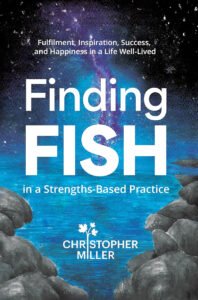
Editor’s Note
Christopher Miller’s Finding FISH in a Strengths-Based Practice is an insightful and practical guide for those navigating or leading a strengths-based coaching business. As the second book in the FISH Philosophy Trilogy, it focuses on creating fulfilment, inspiration, success, and happiness (FISH) as outcomes of aligning personal purpose with professional practice.
Miller masterfully combines practical strategies with motivational insights, addressing essential aspects such as marketing, client delivery, and building financial resilience. Whether you’re an aspiring coach transitioning into self-employment or an established practice owner, the book provides clear guidance on leveraging strengths to achieve both business success and personal fulfilment.
It’s refreshing to see a philosophy that ties professional goals directly to deeper personal well-being, showing that success is more than financial—it’s holistic. With its accessible tone and actionable advice, this book is a must-read for anyone passionate about strengths-based entrepreneurship and purposeful living. Highly recommended.


